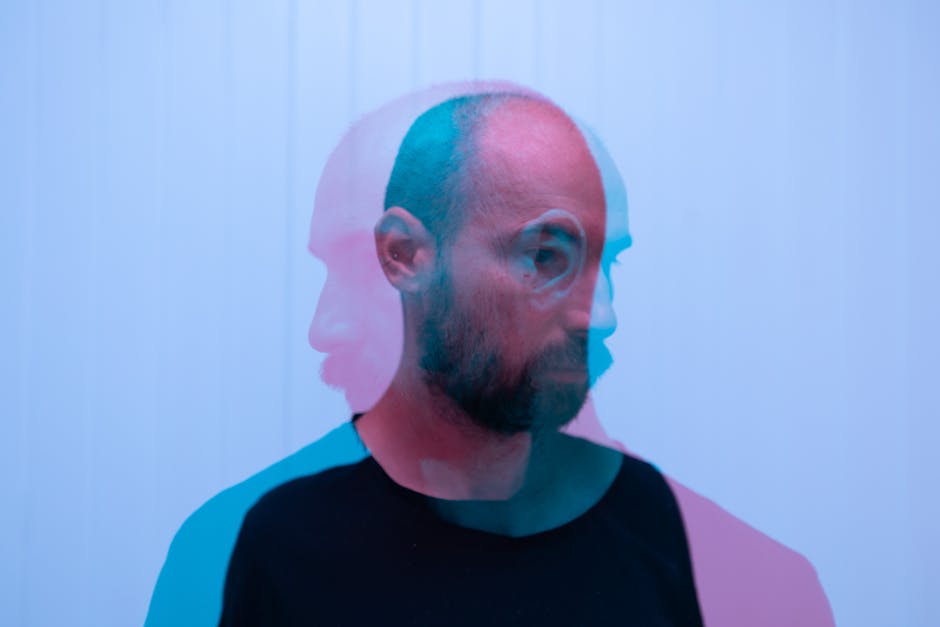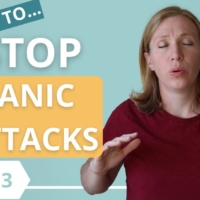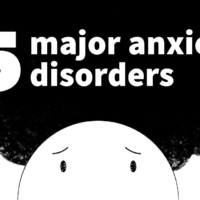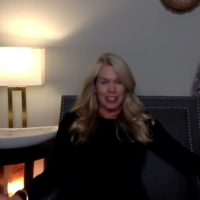10 Ways to Treat Anxiety Naturally and WITHOUT Medications!
Are you suffering from chronic
stress and anxiety? And are you looking for ways to deal with that
without reaching for medication or maybe you are on medication but are looking
for things to do that can help control it better without having to adjust your medication? If
so then this video is for you. Keep watching to learn of some simple things you can
do right now to help with your anxiety
Hi there, I m Dr. Erik Richardson a board-certified Family Practice physician. I d like to welcome you to FamilyMed, a channel
that focuses on giving you practical and accurate medical information to help you and your family.
If you think this would be helpful to you make sure you subscribe, hit that
notification button, and follow along with us.
Today, we are going to be going over some simple
common sense but also study proven techniques that can help you get better control of your
anxiety.
Anxiety is one of the most common health issues that we see in our clinics. It s
estimated that approximately 20 percent of adults in the United States are dealing with or have
dealt with some sort of anxiety disorder. So if you are suffering from it right now, you
are not alone. It can be quite overwhelming and can start to control your life. There is
good news though. There are things that you can start doing to help get this under control.
I guess before we go into discussing how to treat it, I find that it s helpful to understand
a little bit about what anxiety is. The best way that I have found to describe it
centers around recognizing a normal reaction in our body that we call the fight or
flight response.
This is the mechanism that we have developed that when confronted with
something dangerous allows our body to ramp up and either fight it or run from it. For example,
if you are walking through a forest and a bear charges out at you, what s going to happen?
Your heart rate elevates, your blood vessels constrict to allow more blood to the brain,
and adrenaline is released helping you to either run or fight for your life. These are normal responses
and they are good responses because when the bear is coming after you, you need to react.
Anxiety
is a condition where this response is a little too active. It s where these normal responses to scary
or dangerous situations are overactive or flare up for things that are not dangerous or scary.
So instead of the bear charging in the forest, it s as if you were walking through the trees
and a fuzzy bunny were to hop in front of you. But instead of thinking how cute it is,
your body reacts to it like it was a bear. So that s what is happening with anxiety.
Normal day-to-day life is triggering that flight or fights response in a way that starts
to interfere with your ability to function. There are ways though that can help
control these so let s get into those.
The first thing that is going to help
with treating your anxiety is Exercise. We’ve found that 30 minutes a day of some sort of
physical exercise or activity can help to decrease anxiety symptoms.
And in general, it doesn’t seem
to matter what type of exercise you do. So find something that you can enjoy, that gets your
heart rate elevated, and make it a regular habit. The more consistent you can be with
it the better results you will see.
The second thing I want you to
do is to learn how to meditate. Meditation can help slow racing thoughts making
it easier to manage stress and anxiety. One of the types of meditation that you may want to look into
is Mindfulness meditation. This is a practice where you focus on yourself, and your breathing
and become present with yourself as you are. There s a lot more to it so do your
research on how to do it but a fairly recent analysis of multiple different studies showed
that mindfulness meditation was an effective way to help deal with stress and anxiety.
The third thing I want you to do is to get outside.
I’ve had a lot of patients lately
who are worried because of COVID and other issues that they have been staying inside. This is
one of the worst things you can do for your help. Get out in nature, and be around beautiful things.
Get some fresh air and do it regularly. If you aren’t in a position where you can get to
the mountains or other beautiful scenery, bring that into your house. Put up pictures of nature,
get some plants in the house, get on youtube, and watch some relaxing nature videos. There are a lot
of benefits that come from just getting outside.
The 4th thing that we find that can help is
to incorporate some aromatherapy into your life. Smelling soothing plant oils can help ease stress
and anxiety. Surrounding yourself with soothing smells.

Lavender oil has been studied especially
in the realm of insomnia and is effective in helping. Find some that are
calming and soothing to you and give them a try.
The 5th thing I want to recommend is kind of a
combination of exercise and meditation and that is Yoga. I first got introduced
to Yoga while trying to make it through an exercise program called P90X. I couldn’t
believe what a workout Yoga gave me but also the decreased stress that I felt after doing
it. Yoga is a great way for you to work on that stress and anxiety.
The 6th is to get in and work with a therapist. Cognitive Behavioral Therapy and Biofeedback
treatments can be great tools for finding what things are making you anxious and finding
ways to be able to cope, eliminate and deal with things that are affecting your life.
Many of us
may be hesitant to work with a trained counselor because of some of the stigma involved with it.
We need to get away from that stigma though as it is one of the most effective measures that can
help you from having control your life.
The 7th is making it a priority to get enough sleep
in your life. Sleep recharges the brain and boosts our mood and focus. Getting enough sleep will help
you be less anxious. Most adults need anywhere from 7-9 hours of sleep. Find ways to make it
happen and if you are struggling, I have some suggestions on things that you can do on your
own to get a better night’s sleep right here.
Number 8 is to eliminate the stresses in your life.
I want you to write down all your activities, everything that you are doing that takes up
time in your life. Make an honest assessment to see if you are overscheduling yourself,
or if stress in your life that you just need to get rid of.
What kind of changes
can you make that may even be difficult to give up but you know are not helping you? Many
times, much of our anxiety can be self-imposed, so take the time and build up the courage to confront
those things that are making it more difficult.
Number 9 is practicing breathing. Take the time
several times a day to just sit and breathe. I get reminders on my watch multiple times a
day telling me to breathe. Learning how to, and making the time, to take some slow,
purposeful deep breaths can help decrease stress and help you cope with the anxiety that
sometimes can take over your life.
Number 10 is to keep a journal. The act of writing
down your life. Writing down your experiences, hopes, dreams, and worries can be very helpful
and therapeutic in controlling your anxiety. It gives a place where you can think out
loud and keep track of your thoughts. It can also help you look for patterns and figure
out what makes you anxious. If you are feeling anxious, putting those things down on paper can
help you see things more clearly and avoid having your mind run places where it doesn’t need to go.
Now certainly is not a comprehensive list of things that you can do to control anxiety without
medication. It is a good start and implementing some or all of these in your life can make a
big difference in helping control them.
Maybe you have something that works for you, if so go
ahead and let us know in the comments below.
Anxiety can be a very debilitating condition and
I m not naive to think that these things will cure every case. Sometimes it gets to a point that
it starts to control you instead of the other way around. If you find that doing these types of
things is not helping, make sure you talk to your doctor or another healthcare professional because
there are a lot of other options out there.
Well, I hope found this to be helpful. If so,
do me a favor, go ahead hit that like button and share it with your friends and family. And if
your health is really important to you consider subscribing and hit that notification button so
you don t miss out on any of our other content.
Thank you so much for joining us today here
at FamilyMed and as always please remember to take care of your body because
it s the only one you have.
Brain Booster | Blue Heron Health News ꆜ I was losing my memory, focus – and mind! And then… I got it all back again. Case study: Brian Thompson There’s nothing more terrifying than watching your health fail. You can feel it… but you can’t stop it. Over and over I asked myself, where is this going to end? What am I going to end up like? And nobody could tell me. Doesn’t matter now. I’m over it. Completely well. This is how I did it ➯➱ ➫ ➪➬















